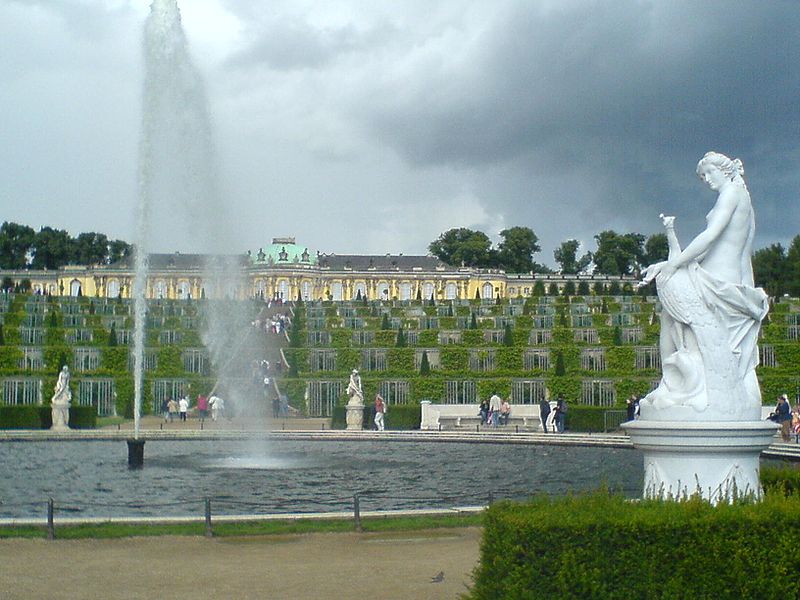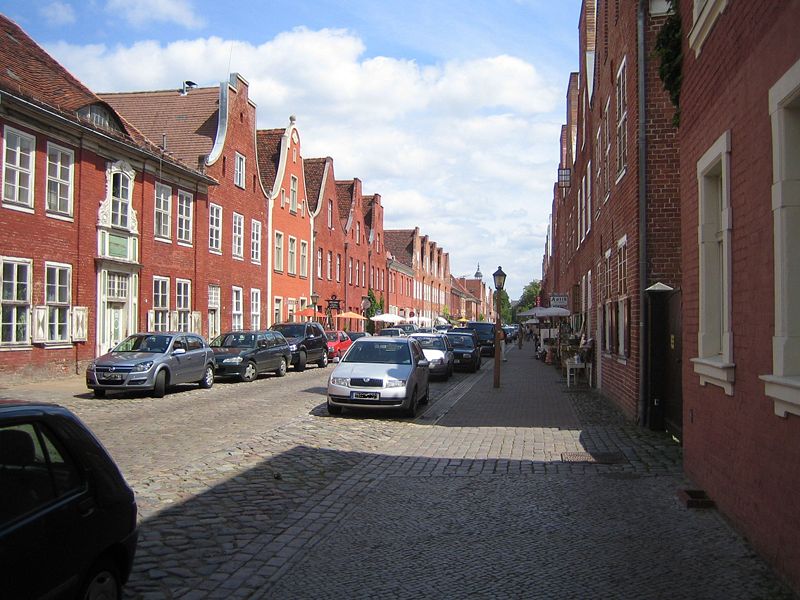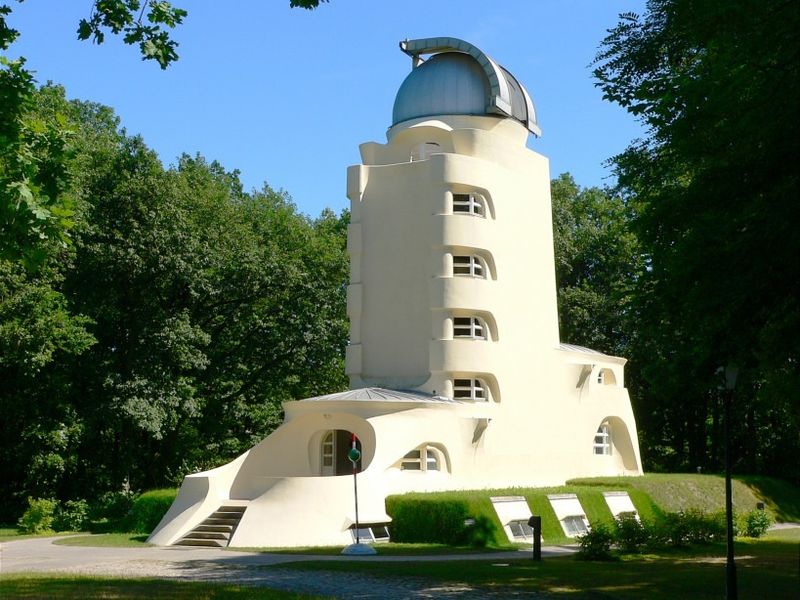4th Many-core Applications Research Community (MARC) Symposium
December 8th-9th 2011
Hasso Plattner Institute at University of Potsdam, Germany
in collaboration with Intel Labs Braunschweig
In continuation of a successful series of events, the 4th symposium of the Many-core Applications Research Community (MARC) will take place at the Hasso Plattner Institute for Software Systems Engineering in Potsdam. On December 8th and 9th, researchers from different fields will present their current and future work on many-core hardware architectures, their programming models, and the resulting research questions for the upcoming generation of heterogeneus parallel systems.
Both MARC members and interested external organizations are invited to submit unpublished reports, both on work in process or new results regarding software for novel many-core hardware architectures. While the Intel Single Chip Cloud Computer (SCC) serves as common research platform for most MARC members, other interesting research on next generation many-core platforms is also relevant for this event.
Topics of interest include, but are not limited to:
- Operating system support for novel many-core architectures
- Virtualization solutions to deal with hardware limitations
- Dealing with legacy software on novel many-core architectures
- New approaches for leveraging on-die messaging facilities
- Traditional and new programming models for novel many-core hardware
All authors are invited to submit original and unpublished work as either regular papers (maximum 6 pages) for oral presentation or short papers (maximum 4 pages) for poster presentation. Papers describing work-in-progress are also welcome.
Please use the provided IEEE document templates.
All accepted and presented submissions will be published as technical report of the Hasso-Plattner-Institute. The copyright remains with the authors. Paper submission is possible through EasyChair:
http://www.easychair.org/conferences/?conf=marc4.
The best three papers will receive an award from Intel:
- First place: $1000
- Second place: $500
- Third place: $250
| Submission deadline: | October 22nd, 23:59 CET |
| Notification of acceptance: | November 19th 2011 |
| Registration deadline: | November 30th 2011 |
| Camera-ready deadline: | November 30th 2011 |
General Chair
Prof. Dr. Andreas Polze, Hasso-Plattner-InstituteProgram Chair
Dr. Peter Tröger, Hasso-Plattner-InstituteProgram Committee
- Dr. Ulrich Bretthauer (Intel)
- Jaewoong Chung (Intel)
- Saurabh Dighe (Intel)
- Prof. Dr. Michael Gerndt (Technische Universität München)
- Diana Göhringer (Fraunhofer IOSB)
- Matthias Gries (Intel)
- Werner Haas (Intel)
- Prof. Dr. Hans-Ulrich Heiß (Technische Universität Berlin)
- Jim P. Held (Intel)
- Prof. Dr. Robert Hirschfeld (Hasso-Plattner-Institute)
- Ulrich Hoffmann (Intel)
- Jason M. Howard (Intel)
- Dr. Michael Hübner (Karlsruhe Institute of Technology)
- Timothy M. Mattson (Intel)
- Georg Müller (Fujitsu Technology Solutions GmbH)
- Prof. Dr. Jörg Nolte (BTU Cottbus)
- Prof. Dr. Andreas Polze (Hasso-Plattner-Institute)
- Dr. Felix Salfner (SAP Innovation Center)
- Prof. Dr. Bettina Schnor (University of Potsdam)
- Prof. Dr. Theo Ungerer (Universität Augsburg)
- Dr. Peter Tröger (Hasso-Plattner-Institute)
- Dr. Daniel Versick (University of Rostock)
- Rob F. Van Der Wijngaart (Intel)
In case of any questions, don't hestitate to contact Peter Tröger.
Location
Potsdam, the capital city of the State of Brandenburg, has a wide cultural ambience and is a natural destination to satisfy varied interests and demands. Potsdam's most popular site is the Schloß Sanssouci palace, located in the park to which it gives its name. However, there is far more than the former summer residency of Frederick the Great and the Sanssouci park to make your visit worthwhile. The Alexandrowka, the Holländisches Viertel (the Dutch Quarter) and the Weavers' Quarter - the historic sections of the city - provide the flair of a city steeped in European tradition.
And if you still have time left, Berlin city center is only 30 minutes away ...
You will get a chance to enjoy the beautiful surroundings of Park Sansoucci at the social event of the MARC symposium, sponsored by Intel Research.
Registration
Please send us the completed registration form via eMail or Fax. The registration fee of 50€ is payed on-site, either in cash or by credit card. Doctoral candidates and students do not have to pay for registration.Preliminary schedule
Thursday, December 8th 2011
- 09:00 - 10:00 : Registration, welcome coffee
- 10:00 - 10:15 : Welcome speech
- 10:15 - 11:00 : Keynote
Tim Mattson, Intel Corp. Tim Mattson earned a PhD. in Chemistry
for his work on quantum molecular scattering. This was
followed by a Post-doc at Caltech where he ported his
molecular scattering software to the Caltech/JPL
hypercubes. Since then, he has held a number of commercial
and academic positions with computational science on high
performance computers as the common thread.
Tim Mattson earned a PhD. in Chemistry
for his work on quantum molecular scattering. This was
followed by a Post-doc at Caltech where he ported his
molecular scattering software to the Caltech/JPL
hypercubes. Since then, he has held a number of commercial
and academic positions with computational science on high
performance computers as the common thread.
Dr. Mattson joined Intel in 1993 to work on a variety of parallel computing problems. This included benchmarking, system performance modeling, and applications research. He was a senior scientists on Intel's ASCI teraFLOPS project: a project that resulted in the first computer to run MPLINPACK in excess of one teraFLOPS.
Currently, he is working in Intel's Computational Software Laboratory. His goal is to develop technologies that will make parallel computing more accessible to the general programmer. This includes OpenMP, cluster computing, and peer to peer computing. - 11:00 - 11:30 : Coffee Break
- 11:30 - 13:00 : Session: Performance I
- Bertrand Putigny, Brice Goglin and Denis Barthou: Performance modeling for power consumption reduction on SCC
- Vincent Vidal, Simon Vernhes, and Guillaume Infantes: Parallel AI Planning on the SCC
- John-Nicholas Furst and Ayse Coskun: Performance and Power Analysis of RCCE Message Passing on the Intel Single-Chip Cloud Computer
- 13:00 - 14:00 : Lunch (provided at conference site)
- 14:00 - 15:30 : Session: Programming models
- Kouhei Ueno and Koichi Sasada: Ruby on SCC: Casually Programming SCC with Ruby
- Tommaso Cucinotta and Vivek Subramanian: Characterization and analysis of pipelined applications on the Intel SCC
- Bruno D'Ausbourg, Marc Boyer, Eric Noulard and Claire Pagetti: Deterministic Execution on Many-Core Platform: application to the SCC
- 15:30 - 16:00 : Coffee Break
- 16:00 - 17:30 : Session: Performance II
- Paul Cockshott and Alexandros Koliousis: The SCC and the SICSA Multi-core Challenge
- Roy Bakker and Michiel W. Van Tol: Experiences in porting the SVP concurrency model to the 48-core Intel SCC using dedicated copy cores
- 18:00 : Bus transporation to social event at Park Sanssouci
Friday, December 9th 2011
- 09:00 - 09:30 : Opening speech
Michael Riepen, Intel Braunschweig - Porting Android to SCCThis talk briefly explains the ingredients of our SCC specific Android release and lists the major obstacles that we needed to overcome on our way to boot 48 Androids on SCC.
- 09:30 - 11:00 : Session: Runtime systems
- Björn Saballus, Stephan-Alexander Posselt and Thomas Fuhrmann: Caching Strategies and Access Path Optimizations for a Distributed Runtime System in SCC Clusters
- Thomas Prescher, Randolf Rotta and Jörg Nolte: Flexible Sharing and Replication Mechanisms for Hybrid Memory Architectures
- Isaías A. Comprés Ureña and Michael Gerndt: Improved RCKMPI's SCCMPB Channel: Scaling and Dynamic Processes Support
- 11:00 - 11:30 : Coffee Break
- 11:30 - 12:30 : Session: Operating systems
- Jan-Arne Sobania, Peter Tröger and Andreas Polze: Towards Symmetric Multi-Processing Support for Operating Systems on the SCC
- Stefan Lankes, Pablo Reble, Carsten Clauss and Oliver Sinnen: The Path to MetalSVM: Shared Virtual Memory for the SCC
- Markus Partheymüller, Julian Stecklina and Bjoern Doebel: Fiasco.OC on the SCC
- 12:30 : Closing
Accomodation
You can reach the Hasso-Plattner-Institute by publication transportation (S-Bahn) from either Berlin or Potsdam. Please check the HPI web page for further details.A trip from Potsdam city center to HPI takes typically no more than 15 minutes. Potsdam has a set of hotels in the very city center, close to the main station and Park Sanssouci, were the social event takes place:
- NH Voltaire
- Hotel am Luisenplatz
- Hotel am Jägertor
- Altstadt Hotel


